 |
Vol VIII No. 3 Fall 2016 |
||||||||||||||||||||||||||||||
|
The 2016-2017 school year is up and running! It’s time for a brand new start with new classes of students and renewed aspirations of a great year of student learning. The possibilities are endless, and the opportunities are great. That’s what the profession of teaching is all about - the chance to contribute in a substantial way to the growth and development of young minds with wide-open futures. And, of course, mathematics teaching and learning affords a tremendous opportunity to foster students’ analytic thinking and reasoning. Each and every student counts within the learning process, though each one is likely in a different place along the continuum of mastery of the content standards. This greatly increases the challenges of meeting students’ needs and accelerating their learning potential. Consider adding the support of the GCTM as a resource in your endeavors to meet these challenges for your students. The reason Georgia Council of Teachers of Mathematics exists is to promote a high quality of mathematics education for each and every student. This statement binds us together in a common purpose and cause, providing a backdrop for the decision-making processes used for instruction and assessment. The members of GCTM accomplish this goal of promoting a high quality mathematics education for each and every student by:
Our Georgia Mathematics Conference is our flagship professional learning opportunity each year that helps our members connect with one another and with local and national experts in teaching and learning mathematics at every grade level. It is scheduled for October 19-21, 2017, at Rock Eagle 4-H Conference Center in Eatonton, Georgia. The Georgia Mathematics Conference each year promotes ongoing professional development for mathematics education as well as encouraging an active interest in mathematics. The theme for GMC 2016 is Principles to Actions: What’s in Your Toolbox? Registration is now open! Visit our webpage (www.gctm.org) to find all the details for this event as well as information on how to register. Similarly, the GCTM Summer Academies for 2017 will be offered as yet another opportunity to connect with teachers from all over the state in high quality professional learning. Dates and locations will be shared soon on our website and at the Georgia Mathematics Conference in October. Stay tuned for registration details early in 2017. GCTM offers several awards and honors each year, and the deadline for these nominations for 2017 is August 31, 2017. This provides an entire year to intentionally watch for those teachers around you to share this vision of a high quality mathematics education for every student. We look forward to all that this year will bring as you encourage and foster the growth of your students. Kaycie
Four GCTM Executive Council members attended the NCTM Affiliate Leaders Conference in July. Those representatives were Kaycie Maddox, President; Bonnie Angel, President-Elect; Rebecca Gammill, Publications Editor; and Joy Darley, Vice President Constitution and Policy. There were 41 affiliates, 90 participants, and 28 states represented. The following groups were present: Benjamin Banneker Association, Inc., National Council of Supervisors of Mathematics, TODOS: Mathematics for ALL, Women and Mathematics Education, and National Council of Teachers of Mathematics (NCTM). Our NCTM president, Matt Larson, served as the keynote speaker throughout the conference.
From left to right: Rebecca Gammill, Kaycie Maddox, Matt Larson, Bonnie Angel, and Joy Darley
Kaycie Maddox sharing advocacy strategies with other affiliates. The Conference Overview & Goals were as follows:
Matt Larson spoke to the participants about the qualities of good leadership and emphasized the following: Good leaders start with why (vision, values, and purpose) and how (strategy, engagement, and empowerment) to achieve what (results, outputs, outcomes, goals, and impacts). Matt Larson’s presentation included a Ted Talk entitled, How Great Leaders Inspire by Simon Sinek.
In addition, we were reminded that action is needed to implement Social Justice in Mathematics Education.
Something new and fun that was presented was Ignite. Ignite is a presentation format where a presenter speaks while slides advance automatically to support them. An Ignite presentation is exactly 5 minutes and has 20 slides making each slide 15 seconds on screen. It is promoted under the slogan, “Enlighten us, but make it quick!” Knowing your why is an important first step in figuring out how to achieve the goals that excite members and create an effective organization. GCTM’s purpose has always been to help all students learn mathematics and has developed many strategies to achieve this purpose. Our group has enjoyed quality leadership for many years and is currently in “good hands.” All of us left inspired and encouraged to do our very best work in 2016! The 21 Indispensable Qualities of a Leader by John C. Maxwell
More pictures from the strip.
Because of the efforts of our educators, the nation is looking towards Georgia and the resources that are provided for our math teachers. In July, NCTM brought the Summer Interactive Institutes to Atlanta, dedicating July 11-13, 2016 to kindergarten through 8th grade educators and July 14-16, 2016 to high school teachers. The first of the two institutes featured several outstanding keynote speakers. Timothy D. Kanold opened the institute by examining the difference between relevant and meaningful mathematics for students. Kanold revealed the “six secrets of effective instruction,” that include: (1) activating prior knowledge; (2) establishing active peer-to-peer discourse; (3) using a variety of tasks to engage students; (4) formative assessment processes in the classroom; (5) becoming great at balancing the rigor of the tasks you choose; and, (6) designing great beginnings and endings. Harold Asturias concluded the first day by discussing ways to provide each and every student with opportunities to wrestle with, make sense of, and communicate about mathematics. David Pugalee shared in both institutes a plan for creating and implementing an effective mathematical writing program. Robert Berry, III opened up the third day by using Dylan Wiliam’s framework to focus on three key formative assessment strategies that support the Standards for Mathematical Practice: (1) engaging students in discussion, activities, and tasks that elicit evidence of learning; (2) eliciting feedback that moves learning forward; and (3) activating learners as resources for one another. Karen Karp was the closing session speaker. In her session, Karen shared foundational strategies and conceptual approaches for effective mathematics teaching for students with disabilities. Attendees participated Deep Dive Sessions where discussions on the mathematical practices were rooted in a content strand. Kindergarten through Grade 2 focused on place-value structure of numbers, making sense of addition, and making sense of subtraction strategies. Grades 3 through 5 dove into understanding the number line. Participants answered questions that addressed how linear measurement extend from whole to rational numbers. For example, is 3x5 the same as 5x3? Additionally, participants used contexts to develop two different fraction-division algorithms. Grades 6-8 participants chose from a ratio/proportional reasoning strand, which looked at the Big Ideas and the ten essential understandings from ratios, proportions, and proportional reasoning, and a statistics and probability strand, which focused on data variability, investigating chance and bi-variate data.
The High School Interactive Institute was kicked off by Margaret (Peg) Smith, who emphasized effective teaching practices – a key component that supports students’ learning - by guiding participants through The Bike and Truck Context task. Dylan Wiliam enlightened participants on what formative assessments are (and are not), why formative assessments should be a priority, strategies and techniques to implement formative assessments, and ways to support teachers in changing their practice. Barbara Dougherty described common misconceptions students have and strategies to help eliminate and correct these misconceptions. She said we need to “change doing math into thinking with math.” Cathy Seeley concluded by sharing her thoughts on “processing and practicing what was learned” during the institute. She answered the question, “what math do all students need?” with what she called the Big Three: understanding mathematics (make sense of it), do the arithmetic (skills, facts, procedures), and use mathematics (thinking, reasoning, applying, and solving a range of problems). Task Discussion Groups met each day of the High School Interactive Institute. These groups were divided into Algebra 1, Geometry, and Algebra 2, and provided participants with rich tasks that can be shared with others and taken back to the classroom. Both Interactive Institutes included Breakout Workshops where math education practitioners engaged participants in hands-on activities and strategies for implementing these activities in the classroom. Many opportunities were provided for networking with math educators across the nation and interacting with keynote speakers and other presenters. GCTM had a presence throughout both institutes by setting up an information booth where participants could ask questions and join our organization. The outcome was very positive for GCTM by raising awareness of the benefits of being a member and forming deeper connections with NCTM personnel. Several math educators from outside the state of Georgia inquired about GCTM and at least one joined! Hosting NCTM events in our area provides opportunities for more Georgia educators to participate in these wonderful learning experiences.
Congratulations to the following winners of the Summer Learning Scholarship! These lucky people received $200 to help defray travel costs to attend the NCTM Summer Institute in July in Atlanta!
Big congratulations go to the recipients of the Partners in Professional Learning Grant! These pairs of educators received $1500 per pair to help pay travel, lodging, and registration for the NCTM Summer Institute! (Again, names and schools are in the spreadsheet.) All three pairs of winners will be sharing what they learned at the Georgia Math Conference at Rock Eagle!
We have a great conference in store for you. The Georgia Mathematics Conference is for all mathematics teachers Pre-K-college. There are plenty sessions at all grade levels. We have three wonderful keynote addresses planned for Wednesday night, Thursday night, and Friday afternoon.
We have also have great featured speakers, including James Burnett all the way from Australia! Other features speakers from right here in GA include: David Custer, Graham Fletcher, Dr. Marrielle Meyers, Dr. Kevin Moore, Dr. Pam Seda, Dr. Lisa Sheehy, Miranda Simmons, and Erin Talley. Be sure to check out these sessions—you will not be disappointed! See our full list of keynote and featured speakers at https://new.gctm-resources.org/gctm/dv7/?q=gmc. You can check out our preliminary program at https://new.gctm-resources.org/gctm/Resources/Documents/gmc_2016/2016_preliminary_session_listing.pdf.
Teachers, get ready to head to the woods and learn new ways of engaging your students in mathematics! We look forward to welcoming back old friends and meeting a lot of new ones! Come fill your toolbox with new ideas about teaching mathematics today.
The workshop began with one of the most famous problems in mathematics. It is easily accessible to any student, but actually is unsolvable in its most general form! It is the “traveling salesman problem.” A simple version of the problem is shown below: You must travel to Macon, Charlotte, Birmingham, Asheville, Chattanooga, and Nashville. You will begin and end in Atlanta and visit each city exactly once.
This problem includes only seven cities, but you could include any number. There is actually no efficient algorithm known to solve the problem for any number of cities, but according to William J. Cook, author of In Pursuit of the Traveling Salesman, the problem has been solved for 85,900 cities. The computer code used to solve the problem is available over the internet and called Concorde; in addition, the solution was used in a situation where the cities represented locations of connections that must be cut by a laser to create a computer chip. Cook describes a variety of unexpected applications of the TSP involving mapping genomes, aiming telescopes, gathering geophysical seismic data and other problems that are “wildly distant from actual salesmen planning their tours.” The TSP is one of many “NP-complete” problems. “NP” stands for non-deterministic polynomial time, and indicates that there is no known algorithm for efficiently solving the problem in reasonable computer time (unless you want to run parallel computers to the end of time perhaps). The Metro Atlanta Math Teachers’ Circle meets the second Monday evening of September, October, November, January, February, and March from 6 to 8 PM. Dinner is provided. Join us for a fun night of mathematics! Contact Virginia Watson at vwatson@kennesaw.edu if you’d like to join us!
How do I know that they are actually understanding the material? I will ask a question and give them all wait time to think about it! I ask, “How can we change this observational study into an experiment?”, and 2 out of the 42 mumble something. “One more time and louder please. Yes!! That’s it. You have it!” I reply. So what about the other 40? What are they thinking? Keisha Brown is an Assistant Professor of Mathematics at Perimeter College of Georgia State University. She completed her Master’s degree in Mathematics Education from Georgia State University in 2007 and Master’s degree in Applied Statistics from Kennesaw State University in 2012. She is interested in research about students’ perceptions of learning.
GCMT would like to congratulate the team of U.S. high school students for bringing home a gold medal for their performance at the 57th annual International Mathematical Olympiad in Hong Kong. For For the second consecutive year, the US team grabbed the top spot, and this year included two perfect scores.
Members of the winning 2016 U.S. team were Ankan Bhattacharya, Michael Kural, Allen Liu, Junyao Peng, Ashwin Sah, and Yuan Yao, all of whom were awarded gold medals for their individual scores. Team members Liu and Yao each earned perfect test scores. The team was accompanied by Loh and deputy coach Razvan Gelca, professor of mathematics and statistics at Texas Tech University. Find out more about this winning team through the following resources. Mathematical Association of America
HONORS & AWARDS Do you know a teacher of mathematics that goes above and beyond their job description to assure their students are successful? Now is the perfect time to stop and recommend this person for a well-deserved GCTM honor/award. The rules for making a nomination have been changed to make it easier than ever to submit the name of a special educator that truly makes a difference in the lives of their students for a GCTM honor/award. No longer does the person making the nomination need to be a member of GCTM, except in the case of the Gladys M. Thomason Award. This means any teacher, coach, administrator, parent, or student is now eligible to submit a great candidate for any of the other appropriate honors/awards.
Gladys M. Thomason Award for Distinguished Service :
Nomination form
Dwight Love Award:
Nomination form
John Neff Award :
Nomination form
Awards for Excellence in the Teaching of Mathematics :
Nomination form
Teacher of Promise Award :
Nomination form GRANTS Do you have great ideas for activities and lessons for your students, but just do not have the materials to implement them in your classroom because there is no money available through your school, system, or PTA? GCTM can help! GCTM offers mini-grants in any amount up to $300 and special project grants to support larger projects that focus staff development, conferences, curriculum development, task forces, research projects, and other initiatives. For more information, please visit the Grants Page to send us your application. Be sure to make it simple for those voting on your grant to understand the purpose of your lesson, why you need the items you are requesting, and why you need help with funding. GCTM wants to help YOU!
In the Summer Issue of Reflections, we polled our readers as to the content they were most interested in reading over the next year. Now the results are in! Thank you to all those who took the time to complete the survey. We hear you and hope to include these topics in the near future. Question 1: What is the most important topic you’d like to see in Reflections?
Question 2: What is the second most important topic you’d like to see in Reflections?
Question 3: What is the third most important topic you’d like to see in Reflections?
Question 4: What is the least important topic you’d like to see in Reflections? The least important topics for our readers included Social Justice and Mathematics, Student Test Prep, and a Problem of the day. With respect to accessibility, 85% of our readers would like the ability to comment or respond to articles within Reflections as well as be able to download a PDF of the Reflections Issue. Seventy-five percent of our readers access Reflections via email while the other 25% use both email and our website to view Reflections. Based on this reader feedback, Reflections welcomes papers, lessons, and reflections that highlight or focus on the following topics:
Of course, other topics will always be considered for publication, so if you have a lesson, research, or a narrative to share with our readers, please send a manuscript to gammillgctm@gmail.com. Additionally, we would like to continue to include student mathematical artwork within our issues. So, if you find your students are creating mathematics in your classroom, show off their work within this larger forum by sharing it today. Just don’t forget to include the student release forms provided by your school district so that we can legally publish this student artwork in our publication. We look forward to hearing from you!
Excerpted from NCTM Affiliates News & NCTM e-blast August 2016 Founded in 1920, the National Council of Teachers of Mathematics (NCTM) is the world’s largest mathematics education organization, with 80,000 members and more than 230 Affiliates throughout the United States and Canada. Interested in Membership? Learn more about exclusive member benefits and discounts and join today at NCTM.org, Membership.
Check out the newly
revised NCTM website, nctm.org, to learn more about these
initiatives!
Your Personal Reflection
The value of any one of these rewards far surpasses the $20 membership fee you offer for your GCTM membership. It is the best bargain in your professional life! RENEW today! Invite a colleague. Offer membership to a beginning teacher. It is the best legacy you can give…to yourself and any other teacher of mathematics!
|
Table of Contents President's Message - by Kaycie Maddox, GCTM President Advocacy by Denise Huddlestun, VP for Advocacy NCTM Affiliate Leaders Conference in Las Vegas, Nevada July 18-20, 2016 Leadership: Inspire Affiliates & Individuals to Take Action by Joy Darley, VP Constitution and Policy NCTM Interactive Institutes in Atlanta, Georgia July 10-16, 2016 Engaging Students in Learning: Mathematical Practices by Bonnie Angel, GCTM President Elect 2016 - 2017 Summer Learning Scholarship/Grant Winners - by Chuck Garner, VP Competitions Unintentional Harm by Mendy Grant & Lexi Tanner, South Columbia Elementary GMC Update - by Wendy Sanchez, GMC Program Chair Mathematics Workshop Focused on Logistics by Mary Garner, Kennesaw State University The Power of Learning Catalytics by Keisha Brown, Assistant Professor of Mathematics, Perimeter College Georgia State University Award Announcements! - by Peggy Poole, University VP for Honors and Awards Editor's Note - by Becky Gammill, Ed.D., Editor NCTM News! - by Dottie Whitlow, NCTM Representative GCTM Membership Report - by Susan Craig, Membership Director
|
||||||||||||||||||||||||||||||
|
Georgia Council of Teachers of Mathematics | PO Box 5865, Augusta, GA 30916 | 1-855-ASK-GCTM |
|||||||||||||||||||||||||||||||

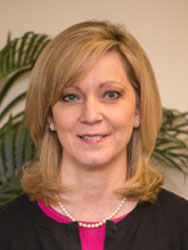
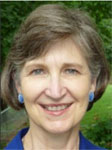 Education
Listening Sessions are being held in different locations in the
state. Check the GCTM website
Education
Listening Sessions are being held in different locations in the
state. Check the GCTM website
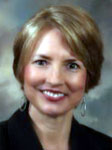
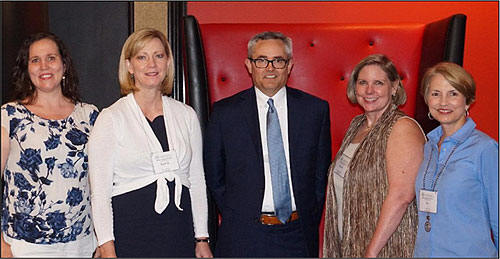
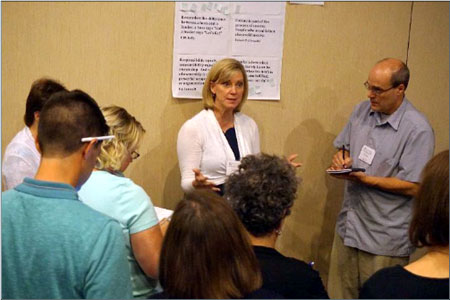





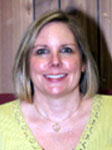
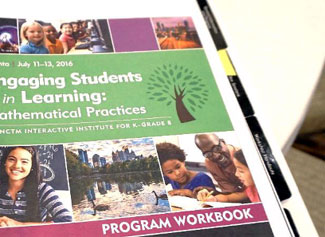
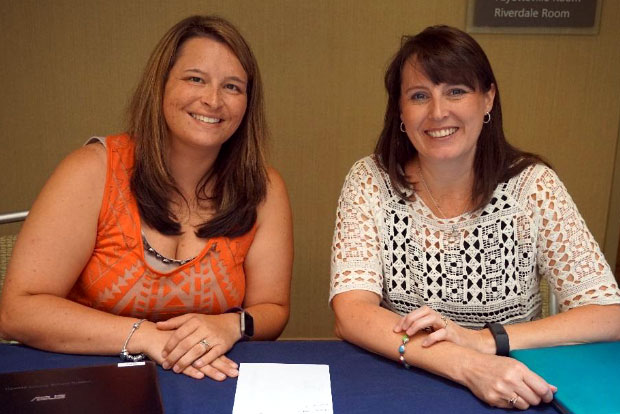
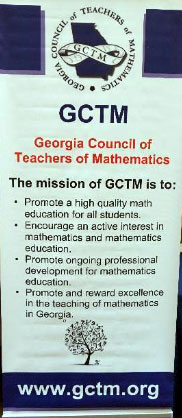
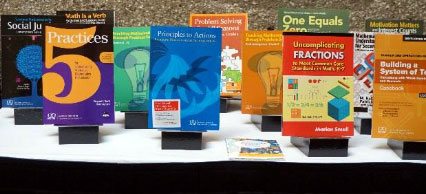
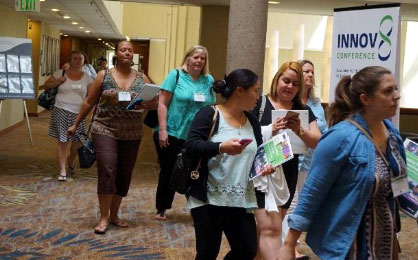
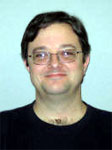
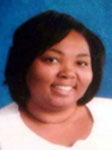
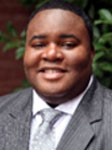
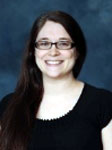
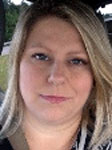
 Teachers do not intend to lay the foundation for students to struggle after they leave their classroom; however, some teaching practices are doing just that! Teachers unintentionally harm students’ learning when they teach tricks, shortcuts, and other rules instead of teaching to ensure a strong conceptual and mathematical understanding! Since we were inspired by this experience at the NCTM’s Summer Institutes, we have decided to share what we’ve learned at the Georgia Math Conference at Rock Eagle. Our session will expose some of the negative aspects of teaching tricks, shortcuts, and other rules in the elementary school setting. If you are interested in removing some of the unintentionally harmful practices in your teaching, we encourage you to join us for our interactive session!
Teachers do not intend to lay the foundation for students to struggle after they leave their classroom; however, some teaching practices are doing just that! Teachers unintentionally harm students’ learning when they teach tricks, shortcuts, and other rules instead of teaching to ensure a strong conceptual and mathematical understanding! Since we were inspired by this experience at the NCTM’s Summer Institutes, we have decided to share what we’ve learned at the Georgia Math Conference at Rock Eagle. Our session will expose some of the negative aspects of teaching tricks, shortcuts, and other rules in the elementary school setting. If you are interested in removing some of the unintentionally harmful practices in your teaching, we encourage you to join us for our interactive session!
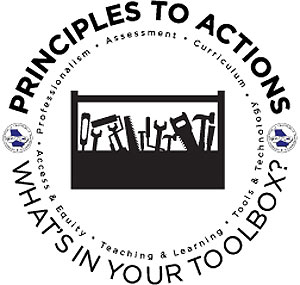 Soon,
the air will be getting cool, and the leaves will start to turn. The
stores will have pumpkin spiced everything, and we can look forward
to corn mazes, haunted houses, hay rides, and all kinds of ghouls
and goblins! This time of year is special for teachers—we get a new
group of students and all kinds of new beginnings. This time of year
also means it’s time to head to Rock Eagle for the Georgia
Mathematics Conference! Make your plans now! Many school districts
will pay for their teachers to attend conferences. You won’t know if
you don’t ask! GMC will be held this year October 19-21, 2016.
Soon,
the air will be getting cool, and the leaves will start to turn. The
stores will have pumpkin spiced everything, and we can look forward
to corn mazes, haunted houses, hay rides, and all kinds of ghouls
and goblins! This time of year is special for teachers—we get a new
group of students and all kinds of new beginnings. This time of year
also means it’s time to head to Rock Eagle for the Georgia
Mathematics Conference! Make your plans now! Many school districts
will pay for their teachers to attend conferences. You won’t know if
you don’t ask! GMC will be held this year October 19-21, 2016.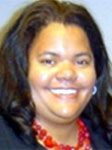 We
will start our conference with a keynote address from Dr. Erica
Walker. Dr. Walker is a product of the Atlanta Public School System.
She taught high school and then earned her doctorate at Harvard. She
is now an Associate Professor of Mathematics Education at Teachers
College, Columbia University. Her opening keynote is “Math
Everywhere: Building Excellent and Equitable Learning Spaces Within
and Beyond Schools”.
We
will start our conference with a keynote address from Dr. Erica
Walker. Dr. Walker is a product of the Atlanta Public School System.
She taught high school and then earned her doctorate at Harvard. She
is now an Associate Professor of Mathematics Education at Teachers
College, Columbia University. Her opening keynote is “Math
Everywhere: Building Excellent and Equitable Learning Spaces Within
and Beyond Schools”.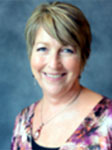 Thursday
evening, our keynote speaker will be Dr. Jenny Bay-Williams. Dr.
Bay-Williams earned her doctorate from the University of
Missouri-Columbia and is now a Professor of Mathematics Education
from the University of Louisville. She is an author of the popular
Elementary and Middle School Mathematics
Methods: Teaching
Developmentally book series. Her keynote address is titled
“Pathways to Procedural Fluency.”
Thursday
evening, our keynote speaker will be Dr. Jenny Bay-Williams. Dr.
Bay-Williams earned her doctorate from the University of
Missouri-Columbia and is now a Professor of Mathematics Education
from the University of Louisville. She is an author of the popular
Elementary and Middle School Mathematics
Methods: Teaching
Developmentally book series. Her keynote address is titled
“Pathways to Procedural Fluency.”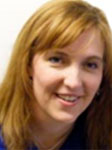 Our
closing keynote address on Friday is from Pamela Weber Harris, who
teaches at the University of Texas. Ms. Weber Harris has a thriving
consulting business and is the author of the book series Building
Powerful Numeracy. Her keynote address is titled, “Building
Powerful Numeracy”. She is also doing some featured sessions, so
you’ll want to check those out!
Our
closing keynote address on Friday is from Pamela Weber Harris, who
teaches at the University of Texas. Ms. Weber Harris has a thriving
consulting business and is the author of the book series Building
Powerful Numeracy. Her keynote address is titled, “Building
Powerful Numeracy”. She is also doing some featured sessions, so
you’ll want to check those out!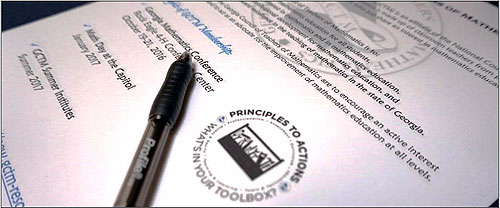
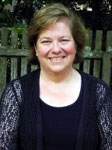 On
June 20 and 21, Virginia Watson, Mary Garner, and Beth Rogers of
Kennesaw State University hosted 15 teachers in a math workshop
supported by the Lockheed Corporation, KSU’s Center for the
Advancement of the Teaching of Math and Science, KSU’s Center for
Excellence in Teaching and Learning, and the Metro Atlanta Math
Teachers’ Circle (MAMTC). The theme of the workshop was “Logistics
is Math” and focused on the logistical problems companies must solve
with the help of mathematics. The culminating event was a tour of
the Lockheed plant.
On
June 20 and 21, Virginia Watson, Mary Garner, and Beth Rogers of
Kennesaw State University hosted 15 teachers in a math workshop
supported by the Lockheed Corporation, KSU’s Center for the
Advancement of the Teaching of Math and Science, KSU’s Center for
Excellence in Teaching and Learning, and the Metro Atlanta Math
Teachers’ Circle (MAMTC). The theme of the workshop was “Logistics
is Math” and focused on the logistical problems companies must solve
with the help of mathematics. The culminating event was a tour of
the Lockheed plant.

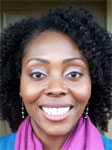 While
teaching any particular class, I can look out at the sea of students
and see a variety of behaviors. I can see the students who are
intently engaged and hooked on every word I say. They are feverishly
writing down all notes on their paper or tablet. I can see the
students who are listening but not writing. Since I provide the
completed lecture notes after class, they can listen first, then
review later. I can see the students who are staring at the computer
screen. They are probably looking at the lecture notes that I’m
discussing now. I also see the students who are also using their
phones to “take notes”.
While
teaching any particular class, I can look out at the sea of students
and see a variety of behaviors. I can see the students who are
intently engaged and hooked on every word I say. They are feverishly
writing down all notes on their paper or tablet. I can see the
students who are listening but not writing. Since I provide the
completed lecture notes after class, they can listen first, then
review later. I can see the students who are staring at the computer
screen. They are probably looking at the lecture notes that I’m
discussing now. I also see the students who are also using their
phones to “take notes”.
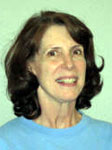
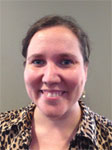
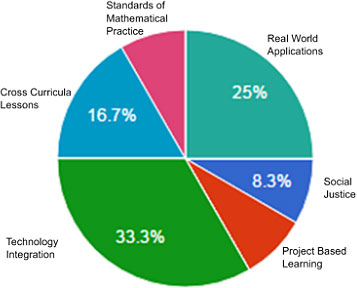

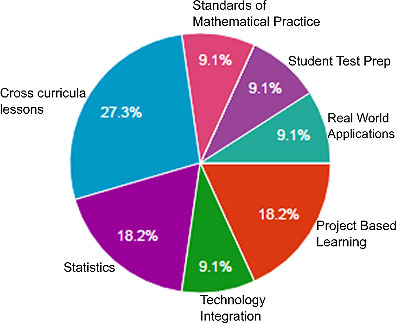
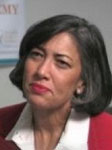
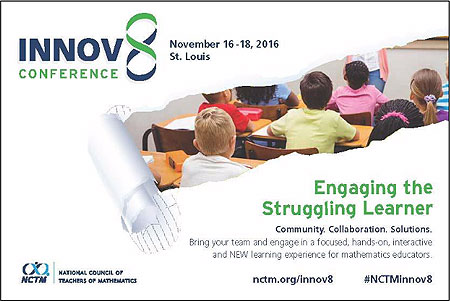
 Reflect
on what your membership in GCTM has meant to you over the years.
Do you think of images of ….
Reflect
on what your membership in GCTM has meant to you over the years.
Do you think of images of ….